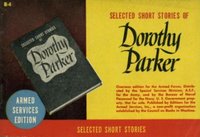But for today, wanted to mention the Wall Street Journal article - I won't bother linking as its restricted access - about authors taking lower advances from smaller publishing houses ("The New Hot Advance: $0," Jeffrey A. Trachtenberg), which explains the trend:
Several top authors in some instances have struck deals with small publishing houses that don't pay them a penny in advance. Instead, these writers have been promised that their latest works will be promoted more substantially to readers in stores, online and in the newspapers. The authors also receive a higher-than-normal royalty rate and have a bigger say in how and where their books are marketed.
Much of this is good news. I like the concept, as long as authors appreciate the limits to their "bigger say." There's a fine line between having an established author who can bring prestige to your list and sales in the bookstores having more room to weigh in on things like the publicity list and design, and good ol' fashioned vanity publishing. An author has to come in understanding the limits to her or his control in publishing a book with a publishing house, as compared to doing it on their own. We bring you our resources, you trust what we do with your book.
David Morrell, who writes thrillers, explains it fairly:
"Traditional publishing functions as an assembly line," says Mr. Morrell. "Often by the time a book is published the project has gone through various departments and the memory of why certain decisions were made weren't passed along, so nobody can understand what's going on."
This is the problem with the ever-corporatizing publishing world. Editors cannot keep in touch with their authors as their numbers are pushed up and they're judged on how many sales their books can generate. They focus on acquiring many and then making sure the few big ones sell really big, thereby leaving the midlist titles to flounder. It's nice to see authors taking back control by going to smaller presses where they can actually get their editor or publicist on the phone.
It is a luxury sometimes to be able to go to a smaller press, it should be noted. As Trachtenberg explains:
For writers who don't need advances for their living expenses, the gamble may be one worth taking. Even the biggest publishers have limited budgets, and invariably they put the bulk of their marketing spending behind each season's most expensive books. The other writers often have to make do with less.
So I started thinking the literary agents must not love this trend, insofar as they don't get any serious profit from an increased marketing effort. I mean, they'll take a cut of the royalties, but we're talking 15% of a maybe 10% royalty - though maybe it's higher in these cases, as that seems to be part of the deal (lower advance, higher royalty = invested author in longterm sales). So the article mentions Eileen Goudge's agent - a "women's fiction writer" (what a genre title, huh ladies?) who moved to a small house, NJ's Melville House:
Susan Ginsburg, Ms. Goudge's literary agent, says she supported the move. Ms. Goudge's books were selling well but needed a lift. Although publishing without an advance is a risk, says Ms. Ginsburg, the allure of a six-figure marketing budget was hard to resist. "If you can afford to make an investment in your career, it's worth trying," she says.
A good agent should support this kind of thing, but a bad agent would go for the big advance money to the detriment of the author's career. Morrell's agent, Jane Dystel, explains that she benefitted from his move as she sold many of the sub-rights - that's the way the agent should do it. Hold back the rights you can sell so you can still rake in a li'l dough.
Now bizarrely, in Morrell's case (unlike Vonnegut's case at Seven Stories), he's just gone to a kind of "small publisher" division of a corporate house: Perseus Book Group. It's not clear whether Perseus is just their distributor or actual owner. Just wanted to throw that in.
It's nice to see established authors seeing their work as benefitting from the added attention they get at smaller houses. Should I ever establish my own publishing house - ya never know - I'd like to retain this quality. It's hard for huge corporate publishers to remember it's about the book, not just the sales, the prizes, the sheer numbers. Authors might have to be the ones, through acts like these, to really make that point.
